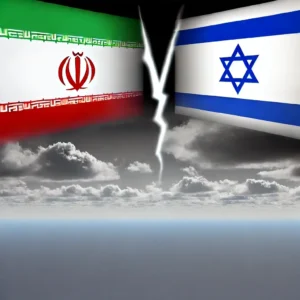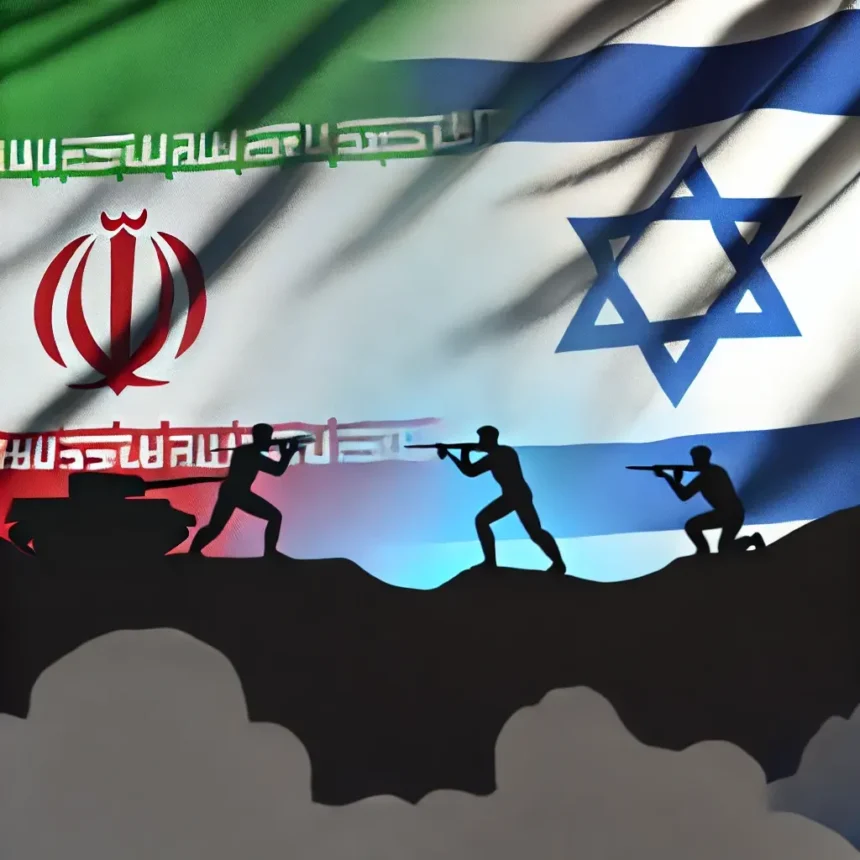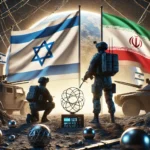Introduction
The phrase “Iran attack Israel Israeli” is a critical focus in Middle Eastern geopolitics. It highlights the ongoing tension between Iran and Israel, which has influenced regional stability for decades. Understanding the roots of this conflict is crucial for anyone seeking to comprehend Middle Eastern politics.
Iran and Israel have a complicated history marked by ideological, political, and military disputes. The two nations have clashed over several issues, with the potential for escalation always looming. As this article delves into these tensions, we aim to provide a clear and easy-to-read explanation of the conflict.
In this article, we will explore the causes, impact, challenges, and recommendations for peace. Additionally, the ongoing effects on international relations will be discussed, focusing on how both nations interact with the global community.
Origins of the Conflict
The tension between Iran and Israel traces back to the Islamic Revolution in Iran in 1979. After the revolution, Iran transformed into an Islamic Republic, adopting a more hostile stance toward Israel. This shift in ideology turned Israel into an enemy in the eyes of the Iranian leadership.
Israel, on the other hand, has long seen Iran’s growing influence in the region as a threat. Over the years, both nations have engaged in proxy wars through allies in Lebanon, Syria, and Gaza. Iran’s backing of militant groups such as Hezbollah further worsens its relationship with Israel.
The phrase “Iran attack Israel Israeli” symbolizes the complex nature of this conflict, which has both religious and political undertones. Iran’s opposition to Israel’s existence and its support for groups hostile to Israel forms a significant cause of the ongoing tensions.
Key Events in the Iran-Israel Conflict
Several key events have shaped the Iran-Israel conflict, leading to heightened tensions. Understanding these events is crucial in grasping the broader picture of “Iran attack Israel Israeli.”
- 2006 Lebanon War: Iran-backed Hezbollah clashed with Israel in a month-long conflict. This war underscored Iran’s influence in Lebanon and demonstrated how Iran’s support for militant groups threatens Israel.
- Nuclear Program Disputes: Iran’s nuclear ambitions have sparked fears in Israel, with the Israeli government viewing a nuclear-armed Iran as a direct threat to its survival. Israel has consistently called for strong international action against Iran’s nuclear program, leading to further diplomatic tensions.
- Syrian Civil War: The Syrian conflict saw Iran increasing its presence in the region, supporting the Assad regime. Israel, concerned about Iranian forces near its borders, launched airstrikes on Iranian targets in Syria. This escalated the conflict and brought the two nations closer to direct confrontation.
Causes of Tensions
Several underlying causes drive the conflict between Iran and Israel:
- Religious and Ideological Differences: Iran’s Islamic leadership has consistently opposed Israel’s existence, framing its opposition in religious terms. Iran sees Israel as a Western outpost in the Middle East, which it seeks to oppose.
- Regional Power Struggles: Both Iran and Israel strive for influence in the Middle East. Iran seeks to expand its power through alliances with Syria and Hezbollah, while Israel sees itself as a protector of democracy in the region. These opposing ambitions contribute to the growing tension.
- Military Competition: The ongoing arms race in the Middle East, particularly with Iran’s missile capabilities and nuclear aspirations, further increases the stakes for Israel. Iran’s backing of militant groups also fuels Israel’s security concerns.
Impact of the Conflict
The phrase “Iran attack Israel Israeli” represents more than just military aggression. The conflict has broader implications for regional and global politics:
- Increased Regional Instability: The conflict has spread across Lebanon, Syria, and the Gaza Strip, affecting millions of civilians. It has also led to a dangerous proxy war, drawing in other regional powers like Saudi Arabia and the United Arab Emirates.
- Humanitarian Crisis: The ongoing hostilities have led to numerous civilian casualties on both sides. The humanitarian crisis in Gaza, where Iran supports groups that fight Israel, has drawn international concern.
- Global Diplomatic Repercussions: The conflict complicates diplomatic efforts between Western countries and Middle Eastern nations. The United States and European Union have attempted to broker peace, but the complex nature of the Iran-Israel dynamic makes lasting agreements difficult.
Challenges in Resolving the Conflict
Several challenges prevent the resolution of the Iran-Israel conflict:
- Proxy Warfare: Iran and Israel often engage indirectly through their proxies in Lebanon, Gaza, and Syria. This complicates peace efforts, as many of these groups act independently of their benefactors.
- Nuclear Ambitions: Iran’s nuclear program remains one of the biggest points of contention. Israel has made it clear that it will not allow Iran to obtain nuclear weapons, further escalating the situation.
- Lack of Diplomatic Relations: Iran and Israel have no formal diplomatic ties, making dialogue difficult. Without diplomatic channels, resolving the conflict becomes increasingly challenging.
Recommendations for Peace
Despite the challenges, there are several possible recommendations for reducing tensions between Iran and Israel:
- Diplomatic Engagement: International mediation, possibly through the United Nations, could facilitate talks between Iran and Israel. Although difficult, establishing communication is essential for peace.
- Arms Control Agreements: Both nations should work towards arms reduction agreements, particularly concerning nuclear weapons. Limiting Iran’s nuclear program would alleviate many of Israel’s security concerns.
- Proxy De-escalation: Iran should reduce its support for militant groups hostile to Israel, while Israel should refrain from striking Iranian interests in neighboring countries. De-escalating the proxy war would create a more conducive environment for peace talks.
International Perspective
Other nations have played a significant role in the Iran-Israel conflict. The United States, for example, has been a strong ally of Israel and has consistently imposed sanctions on Iran to limit its military capabilities. On the other hand, countries like Russia and China have supported Iran in various capacities, further complicating international efforts.
A notable model for resolving conflicts like this is the peace agreement between the United Arab Emirates and Israel in 2020. Known as the Abraham Accords, this agreement normalized relations between the two nations, showing that peaceful coexistence is possible even in the Middle East. While Iran’s position remains far more complex, international efforts could use similar diplomatic frameworks.

FAQs: Iran Attack Israel Israeli
1. Why is Iran against Israel?
Iran’s Islamic leadership opposes Israel’s existence for ideological and religious reasons, viewing it as a Western outpost in the Middle East.
2. What are the major conflicts between Iran and Israel?
Key conflicts include the 2006 Lebanon War, disputes over Iran’s nuclear program, and the Syrian Civil War, where both nations have been on opposing sides.
3. Has Iran ever attacked Israel directly?
While Iran has not attacked Israel directly, it has supported groups like Hezbollah and Hamas, which have engaged in hostilities against Israel.
4. What is Israel’s stance on Iran’s nuclear program?
Israel views Iran’s nuclear program as a direct threat and has consistently called for strong international action to prevent Iran from obtaining nuclear weapons.
5. How does the conflict between Iran and Israel affect the rest of the Middle East?
The conflict contributes to regional instability, drawing in other countries like Saudi Arabia and the UAE and exacerbating tensions across the Middle East.
Conclusion
The phrase “Iran attack Israel Israeli” represents a complex and multifaceted conflict that has deep roots in ideology, regional power struggles, and military competition. The tension between these two nations has had profound effects on the Middle East and the global stage.








